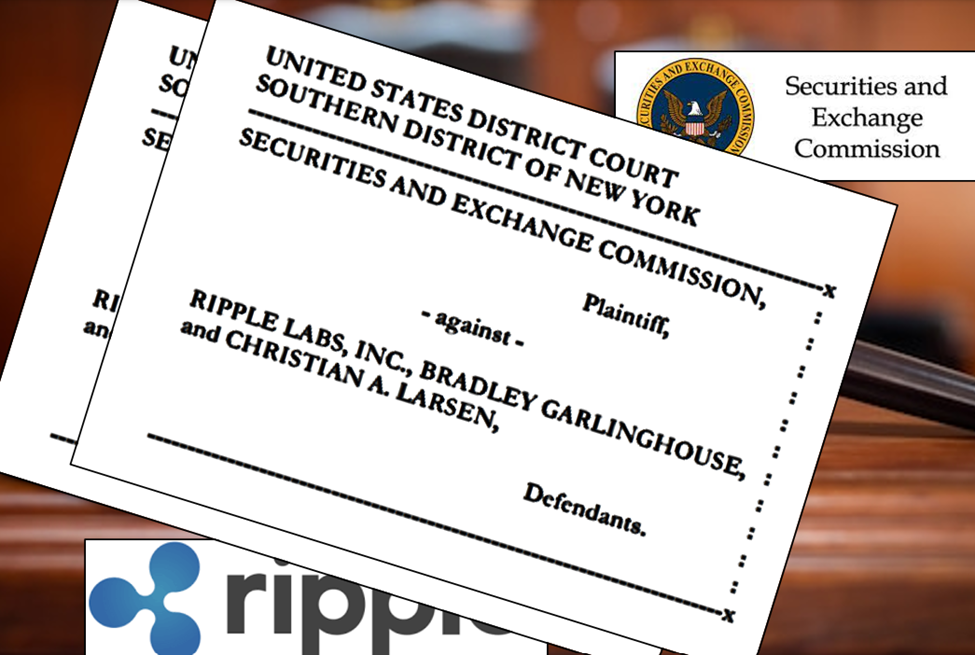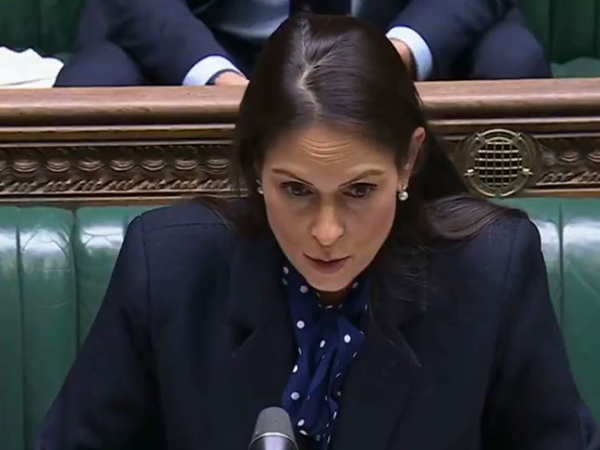SEC Vs. Ripple: Understanding The Impact On XRP's Future

The SEC's Case Against Ripple
The SEC's lawsuit against Ripple alleges that the company engaged in an unregistered securities offering by selling XRP. The core of the SEC's argument centers on the assertion that XRP meets the definition of an "investment contract" under the Howey Test, a legal framework used to determine whether an asset is a security.
- The SEC's Allegations: The SEC claims that Ripple's sales of XRP constituted an unregistered securities offering, violating federal securities laws. They argue that investors purchased XRP with the expectation of profit based on Ripple's efforts, fulfilling the investment contract criteria.
- Application of the Howey Test: The SEC argues that XRP satisfies the Howey Test's four prongs: an investment of money, in a common enterprise, with a reasonable expectation of profits derived from the efforts of others (Ripple).
- Key Arguments Presented by the SEC: The SEC highlights Ripple's marketing materials, internal communications, and the distribution of XRP to insiders as evidence of a deliberate effort to create an investment scheme. They also point to the perceived centralized control Ripple exerts over XRP's distribution.
- Significant Events and Court Filings: The case has seen numerous significant court filings, including motions to dismiss, expert witness testimonies, and ongoing discovery processes. The timeline of events and the court's rulings have significantly impacted XRP's price and market sentiment.
Ripple's Defense Strategy
Ripple vigorously defends itself against the SEC's allegations, arguing that XRP is not a security. Their defense strategy rests on several key pillars.
- XRP's Functionality and Decentralization: Ripple emphasizes XRP's functionality as a cryptocurrency facilitating fast and efficient transactions within their payment system. They argue its decentralized nature, unlike traditional securities, undermines the SEC's claims.
- Programmatic Sales of XRP: Ripple contends that its sales of XRP were programmatic and not targeted at investors seeking profits based on Ripple’s efforts. They highlight the fact that XRP was sold to various entities, not solely for investment purposes.
- Investor Protection: Ripple argues that the SEC's case, if successful, would harm investor protection by creating unnecessary regulatory burdens and chilling innovation within the cryptocurrency sector.
- Expert Witnesses and Legal Strategies: Ripple has engaged prominent legal experts and economists to support its arguments, providing counter-evidence and challenging the SEC's interpretation of the Howey Test.
Potential Outcomes and Their Impact on XRP
The SEC vs. Ripple lawsuit could have several outcomes: a win for the SEC, a win for Ripple, or a settlement. Each outcome would profoundly impact XRP's price and future.
- SEC Win: An SEC victory would likely be highly detrimental to XRP's price and could lead to its classification as a security, requiring future sales to be registered. This could significantly restrict its utility and adoption.
- Ripple Win: A Ripple victory would be a significant boost for XRP, potentially resulting in a surge in its price and increased investor confidence. It could also set a positive precedent for other cryptocurrencies facing similar regulatory challenges.
- Settlement: A settlement could involve Ripple agreeing to certain conditions, potentially including restrictions on future XRP sales or a commitment to increased regulatory compliance. The impact on XRP's price would depend on the terms of the settlement.
- Market Volatility and Regulatory Clarity: Regardless of the outcome, the case will significantly impact market volatility. Increased regulatory clarity, however the case concludes, would benefit the overall cryptocurrency market by reducing uncertainty.
- Long-Term Outlook for XRP Adoption: The long-term outlook for XRP depends largely on the outcome of the case and how this impacts investor confidence and regulatory certainty. Adoption will likely be impacted by how this legal precedent shapes the crypto landscape.
The Broader Implications for the Crypto Industry
The SEC vs. Ripple case extends beyond XRP, setting a crucial precedent for the entire cryptocurrency industry.
- Precedent for Other Cryptocurrencies: The outcome will significantly influence how regulators approach other cryptocurrencies, shaping future regulatory actions and enforcement.
- Impact on Investor Confidence: The uncertainty surrounding the case has already impacted investor confidence. A clear outcome, regardless of which party prevails, will help to restore some of this confidence (though it may not be wholly positive).
- Implications for Regulatory Frameworks: The case highlights the need for clear and comprehensive regulatory frameworks for cryptocurrencies, balancing innovation with investor protection. The outcome will likely influence future regulatory approaches to digital assets.
Conclusion
The SEC vs. Ripple case is a landmark legal battle with far-reaching implications for XRP and the broader cryptocurrency market. The outcome will profoundly impact the regulatory landscape, investor confidence, and the future of XRP's adoption and value. Understanding the various potential outcomes and their associated risks is crucial for making informed decisions regarding XRP investments and navigating the evolving cryptocurrency regulatory environment. Stay informed about the ongoing developments in the SEC vs. Ripple case to make informed decisions regarding your XRP investments and your overall cryptocurrency portfolio. Continue researching the legal battles surrounding XRP and other crypto assets to navigate the evolving regulatory environment.

 Examining The Economic Performance Under The Biden Administration
Examining The Economic Performance Under The Biden Administration
 Rugby Highlights Frances Crushing Victory Over Italy Duponts 11 Tries
Rugby Highlights Frances Crushing Victory Over Italy Duponts 11 Tries
 La Terapia Della Russofobia Secondo Medvedev Minacce Nucleari
La Terapia Della Russofobia Secondo Medvedev Minacce Nucleari
 Bangladesh Nrc Calls For Action Against Anti Muslim Conspiracies
Bangladesh Nrc Calls For Action Against Anti Muslim Conspiracies
